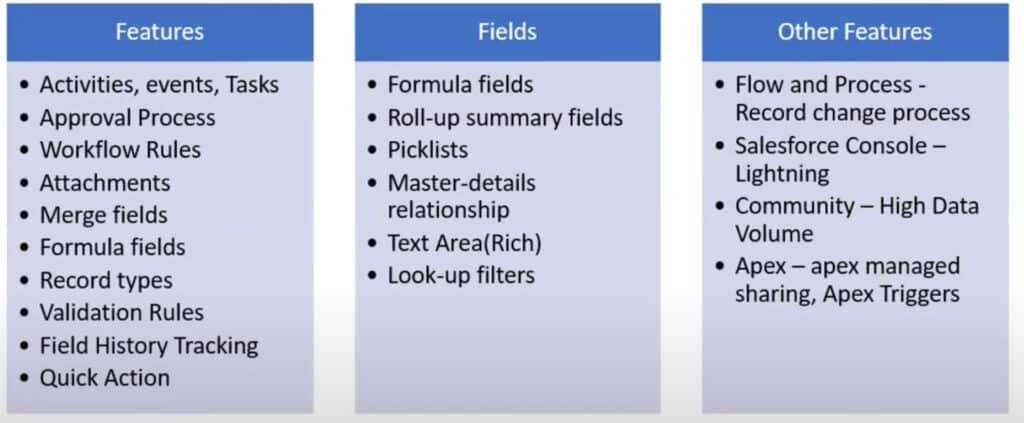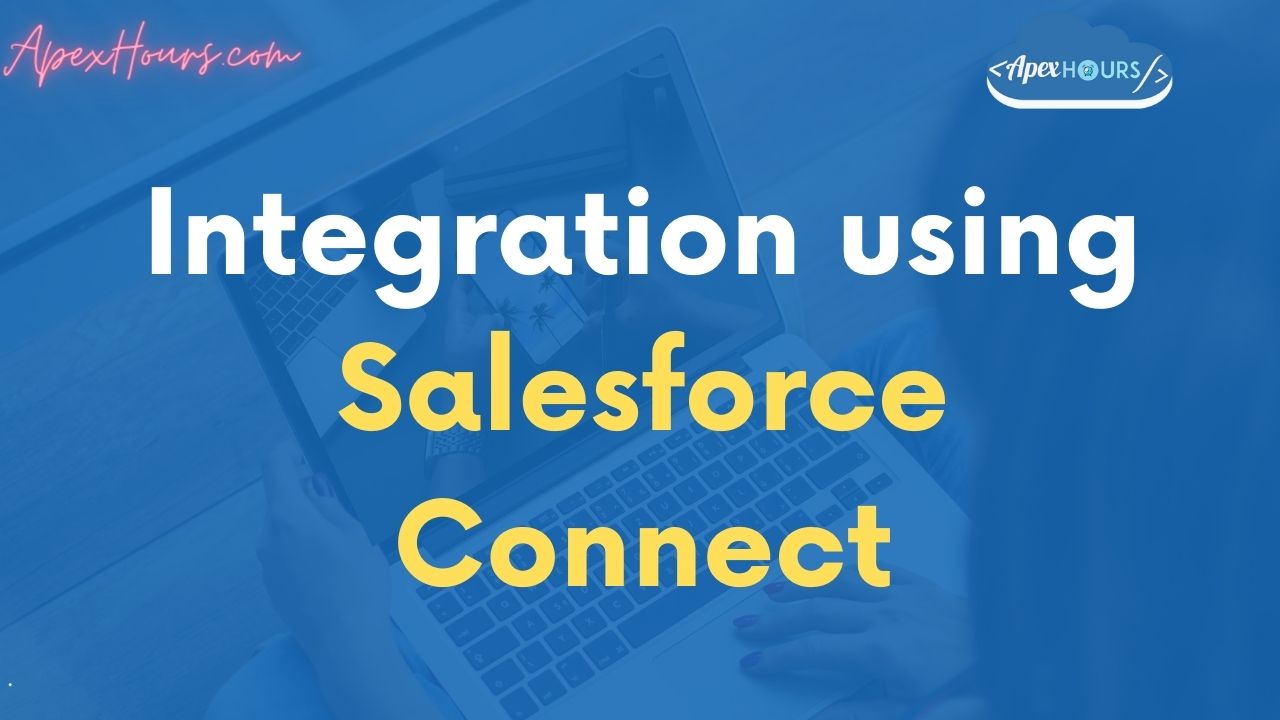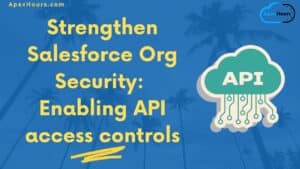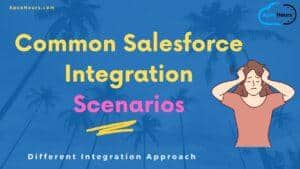When we want to access data stored in an external system – to display, search, or modify within Salesforce, Salesforce Connect is one of the solution options. You can use Salesforce Connect to retrieve data from different types of endpoints.
What is Salesforce Connect?
Salesforce Connect is a powerful App Cloud integration service, which enables users of Salesforce applications to seamlessly access and handle data stored in external sources, without leaving the Salesforce native environment. Instead of copying the data into your org, you can use external objects to access the data in real time via web service callouts.
Learn about Salesforce Integration and all different option of integration on platform.
When to use Salesforce Connect?
- Display, Search, Modify Data stored in external System.
- Don’t want duplicate data storage in Salesforce.
- Small amount of data on real time
- Access to latest data
- Access like Salesforce Object.
Steps to Set Up Salesforce Connect- Cross Org Adaptor
Please check below recording for step by step process to Salesforce Connect – To connect to Another Salesforce Org using Cross Org Adaptor – External Data Source. We cover complete process how to do Integration using Salesforce connect.
Salesforce Connect Approaches

Salesforce Connect Building Blocks
External Data Source and External Object are two building block of Salesforce connects.
1. External Data Source
Here you are defining details of the service you are going to connect, authentication type, which salesforce connect adaptor we are going to utilize etc.
2. External Object
Once the connection is established with an external endpoint, we can sync objects/tables available in the External system to Salesforce. That objects will be created as External Object in Salesforce. In addition to the fields created from the External table, we can define our own custom fields also.
How Can You Link Salesforce Connect with External Applications
You can use the following data adapters to establish a connection between an external data source and Salesforce Connect:
- Open Data Protocol (OData): OData is a very popular REST-based protocol, used extensively for integrating data. You can link data sources, exposed by OData 2.0 or 4.0 producers, to Salesforce Connect.
- Custom-developed adapters: You can also create easy-to-use adapters in Apex, which enable you to link APIs that are not in the OData format. These tailor-made adapters allow you to connect to any web API. You can also use the adapters to link to thousands of publicly available APIs.
- Salesforce Connector: This adapter is ideally suited if you use multiple Salesforce instances. Salesforce Connector is a very user-friendly adapter and can be used to connect external applications without any coding.
OData Adaptor – What is Odata?
OData stand for Open Data Protocol. We can retrieve individual resources using name. execute query, request a set together, create a resource. OData 2.0 supports the XML & JSON and OData 4.0 support JSON.
Salesforce Connect Limitations
1. Salesforce Connect – License Considerations
Salesforce Connect is an Add-on license. Based on the Salesforce documentation, if we purchase 1 license the usage is like below:
2. Salesforce Connect – Rate Limits
3. Handling High Data Volume
If we need to skip the rate limits mentioned above for large data volumes, we can choose high data volume option while creating External Data Source. Limitation : Some Salesforce Connect features will not be working as mentioned below:
- Access via Lightning Experience
- Access via Mobile experience
- Reports and Dashboards
- Writable External Objects
- Recent Items availability
- Record Feeds
- Salesforce Classic console
4. Controlling Record Visibility
- Can set OWD and FLS
- Record level control is not possible.
5. SOSL and SOQL Limits
- External object search displays only the top 25 records
- Search is supported only in Text, Text area fields
- External Objects don’t support the below operators:
- INCLUDES
- LIKE
- EXCLUDES
- toLabel()
- External Objects don’t support below in SOQL
- AVG
- COUNT()
- HAVING
- GROUP BY
- MAX()
- MIN()
- SUM()
6. Salesforce Connect : Customization Feasibility
There are many features / customization which are not supported for External Objects. Let us see those list below:

7. Salesforce Connect – Sync considerations
- Sync overrides local changes
- Better to create our own external object.
Check out the our YouTube, and don’t forget to subscribe to our channel, so that you’re notified right away when a new video is available.






Hi, This blog is very helpful and practical, Thank You so much
Glad you like out post